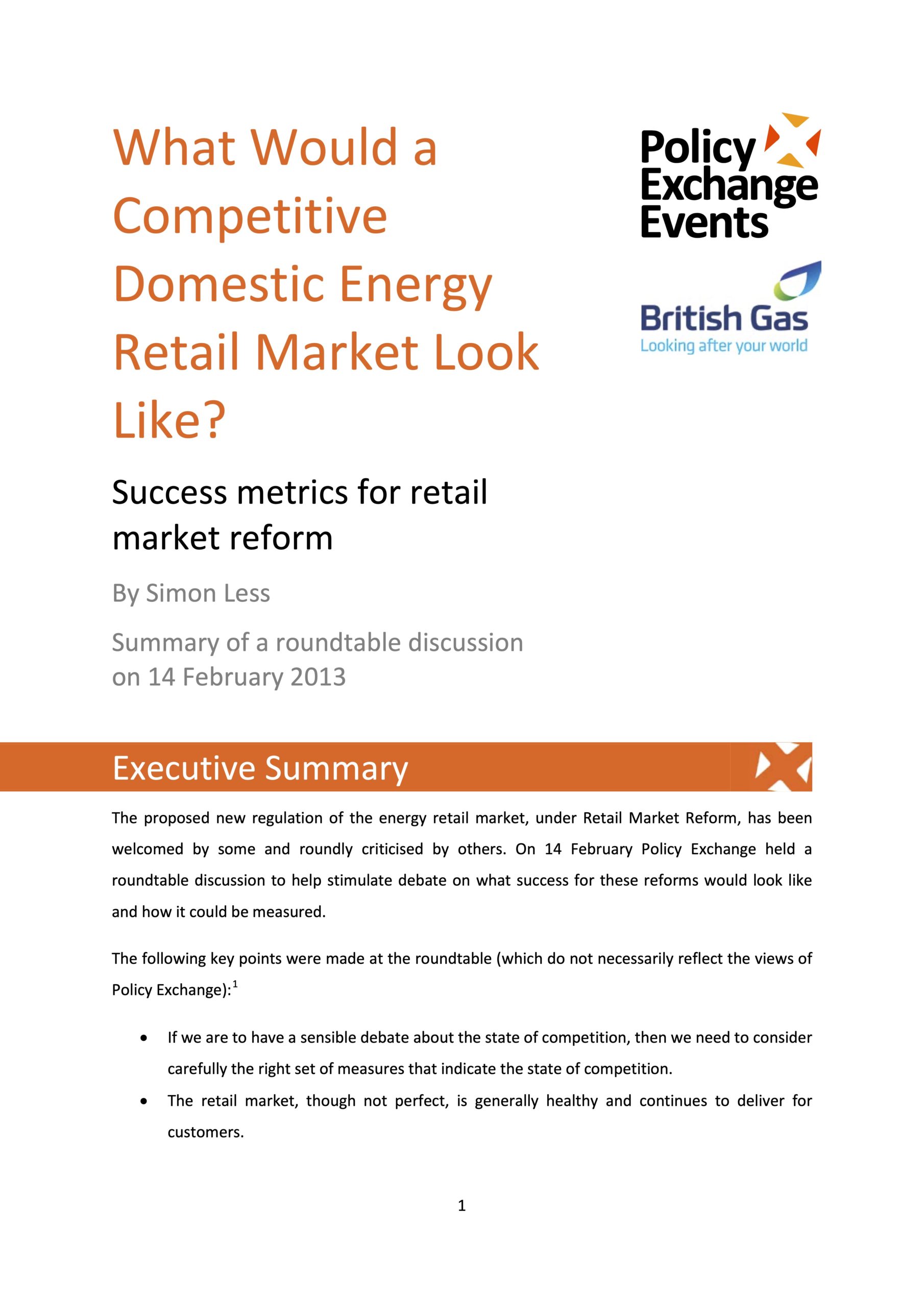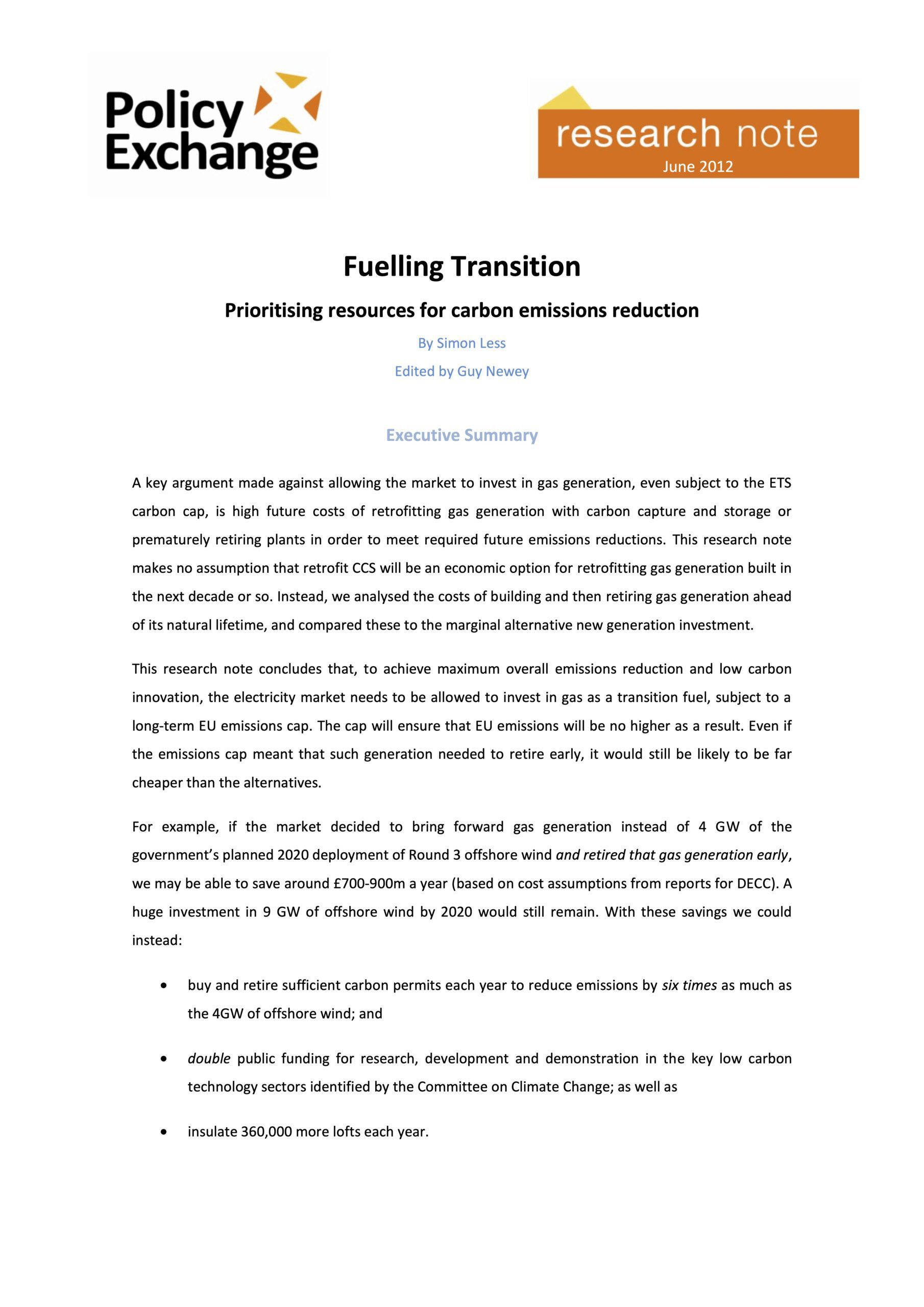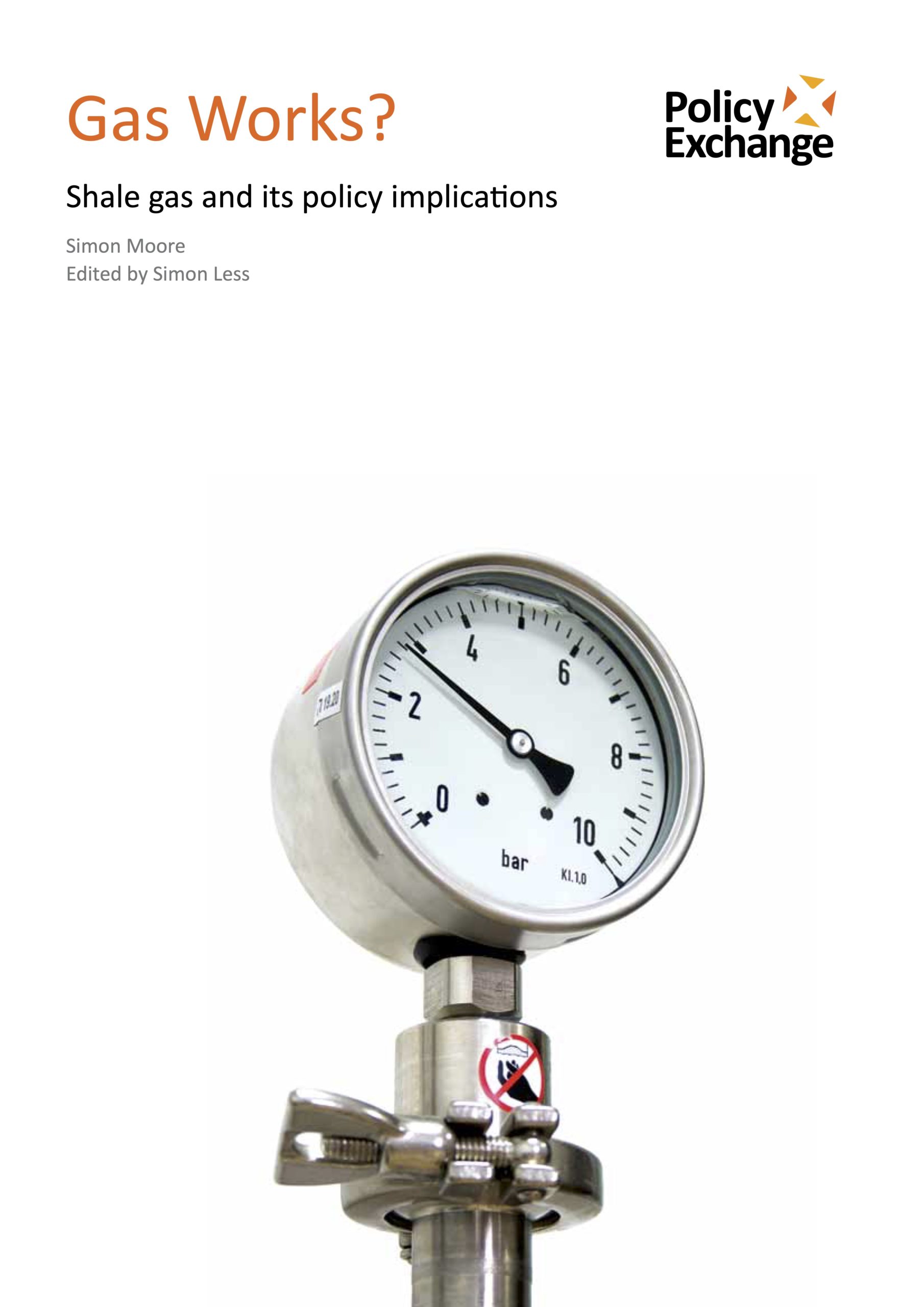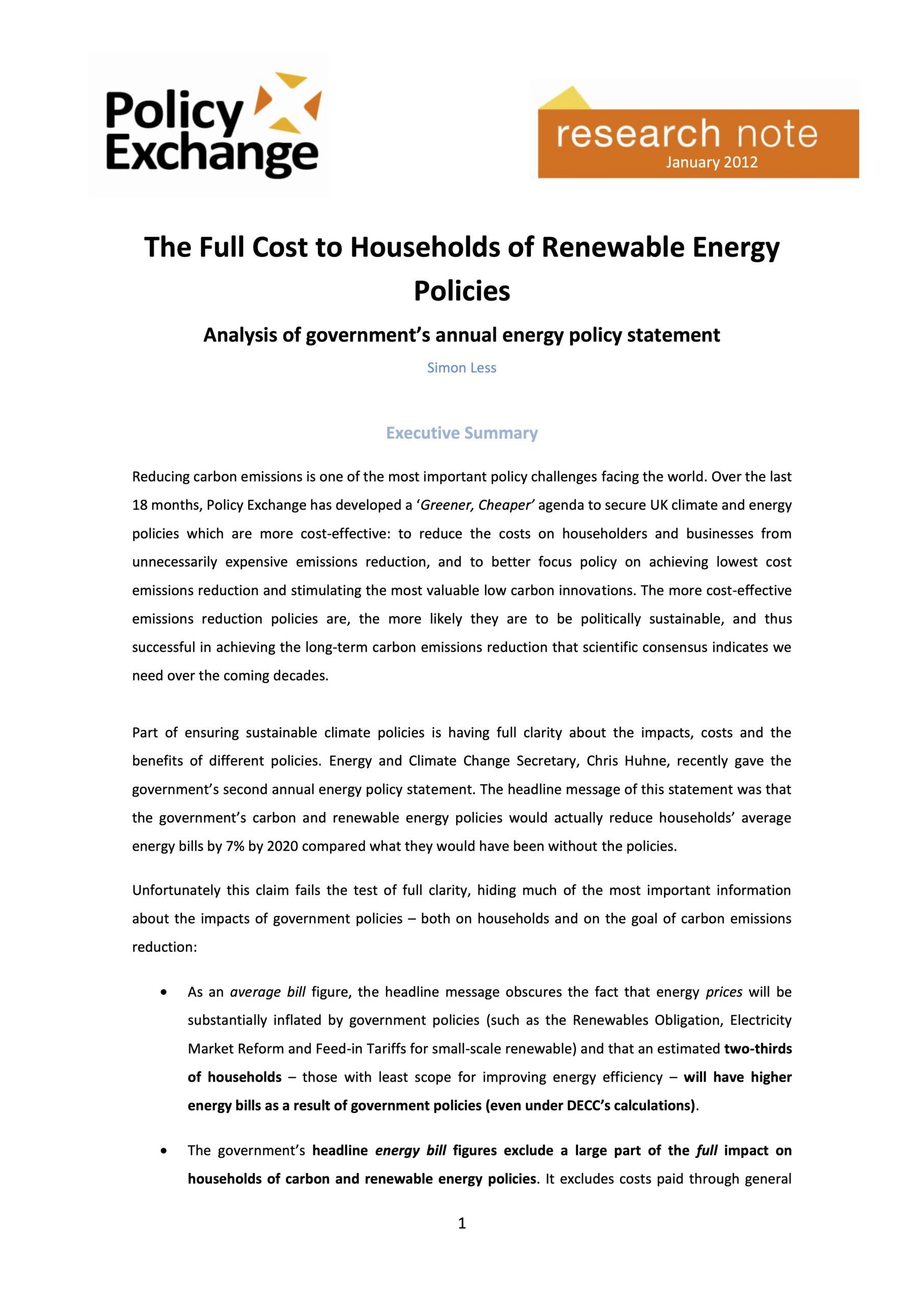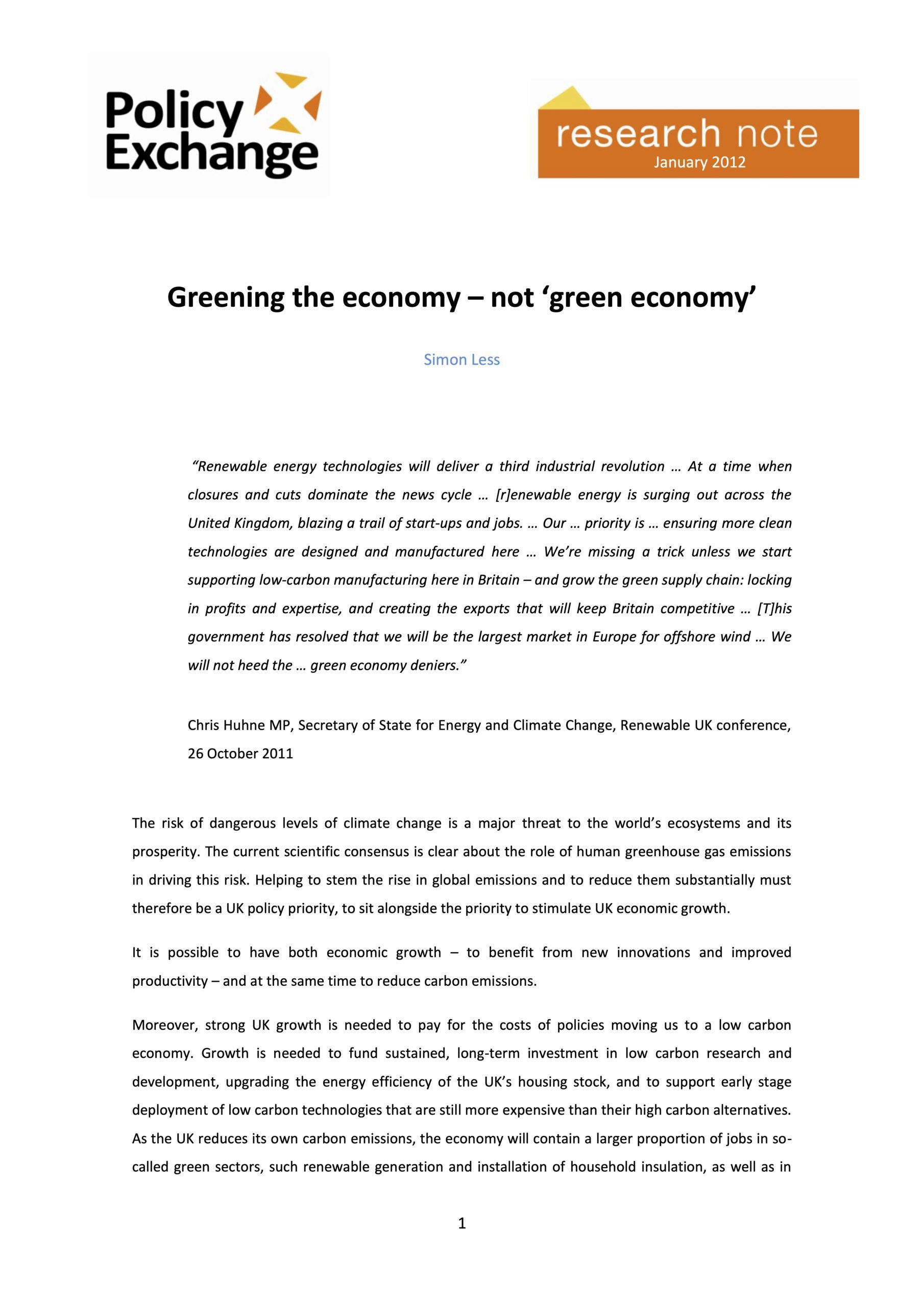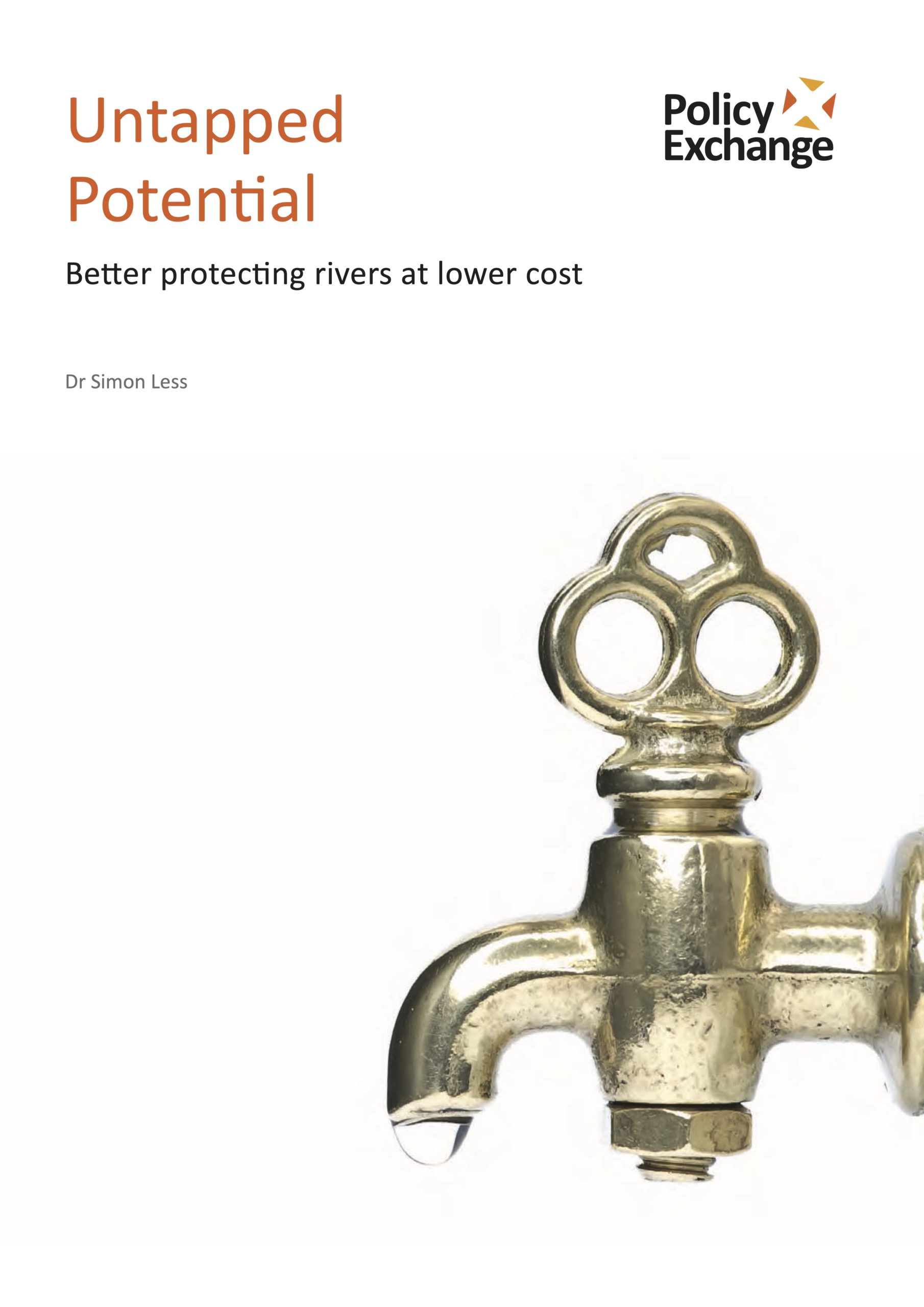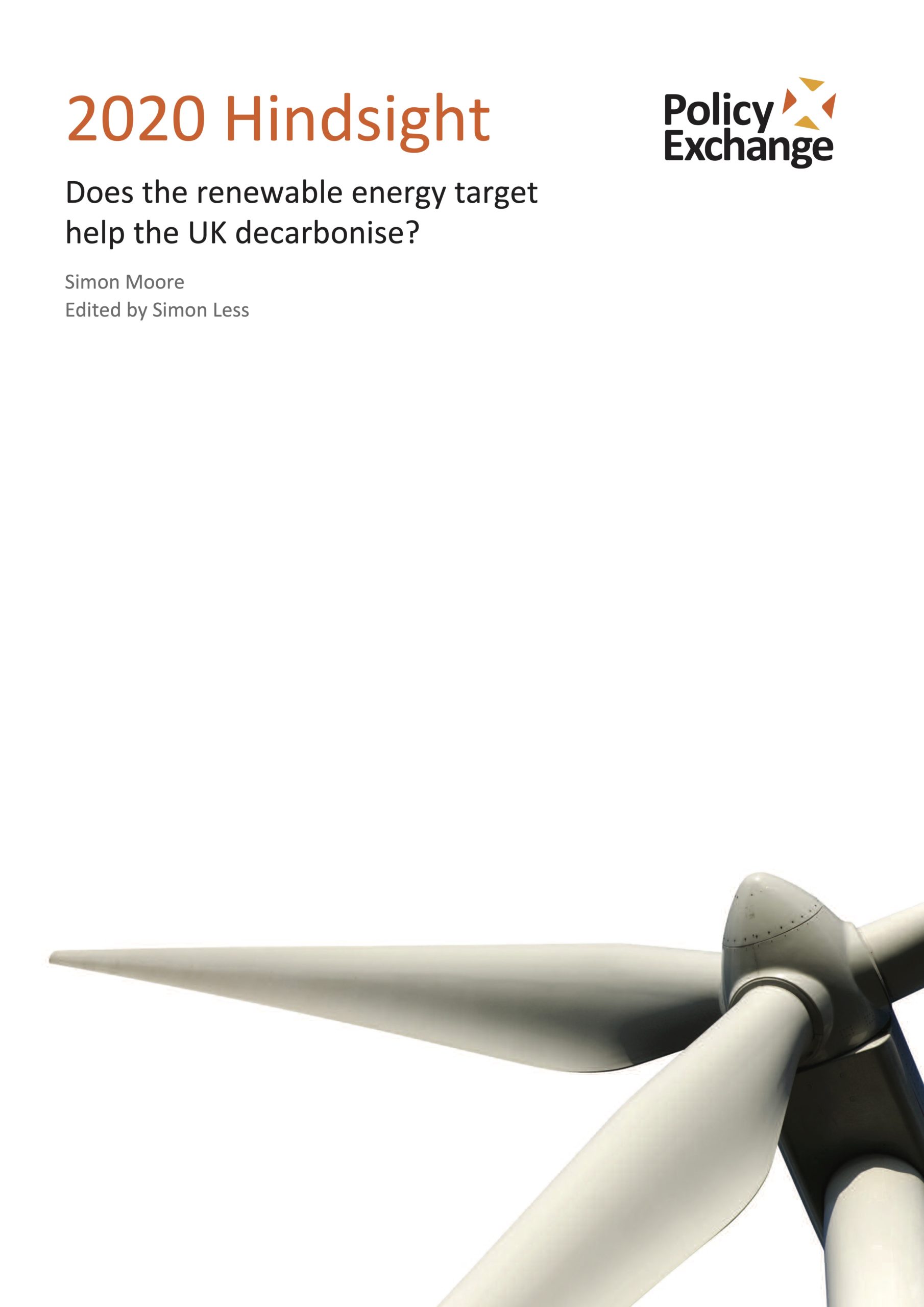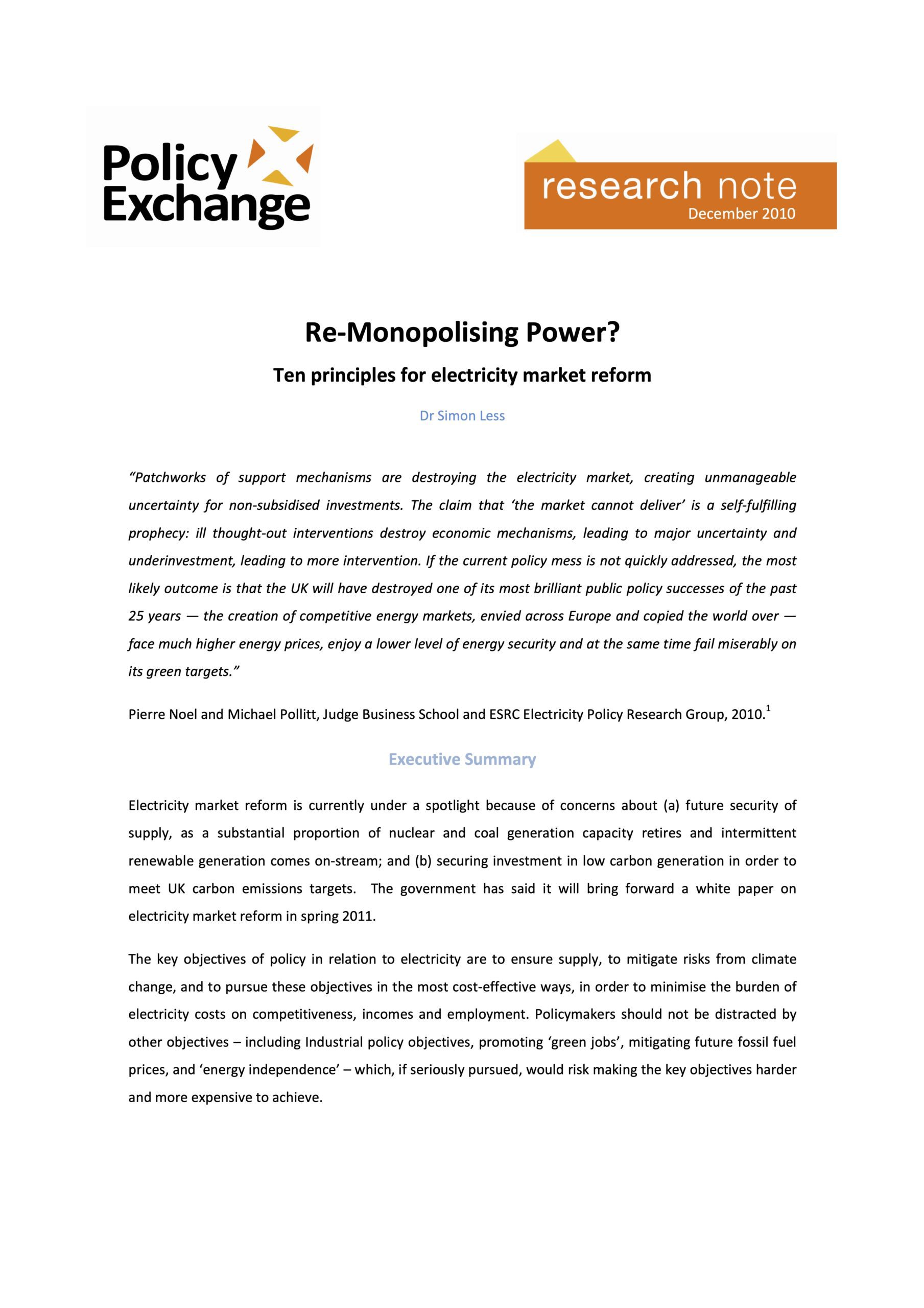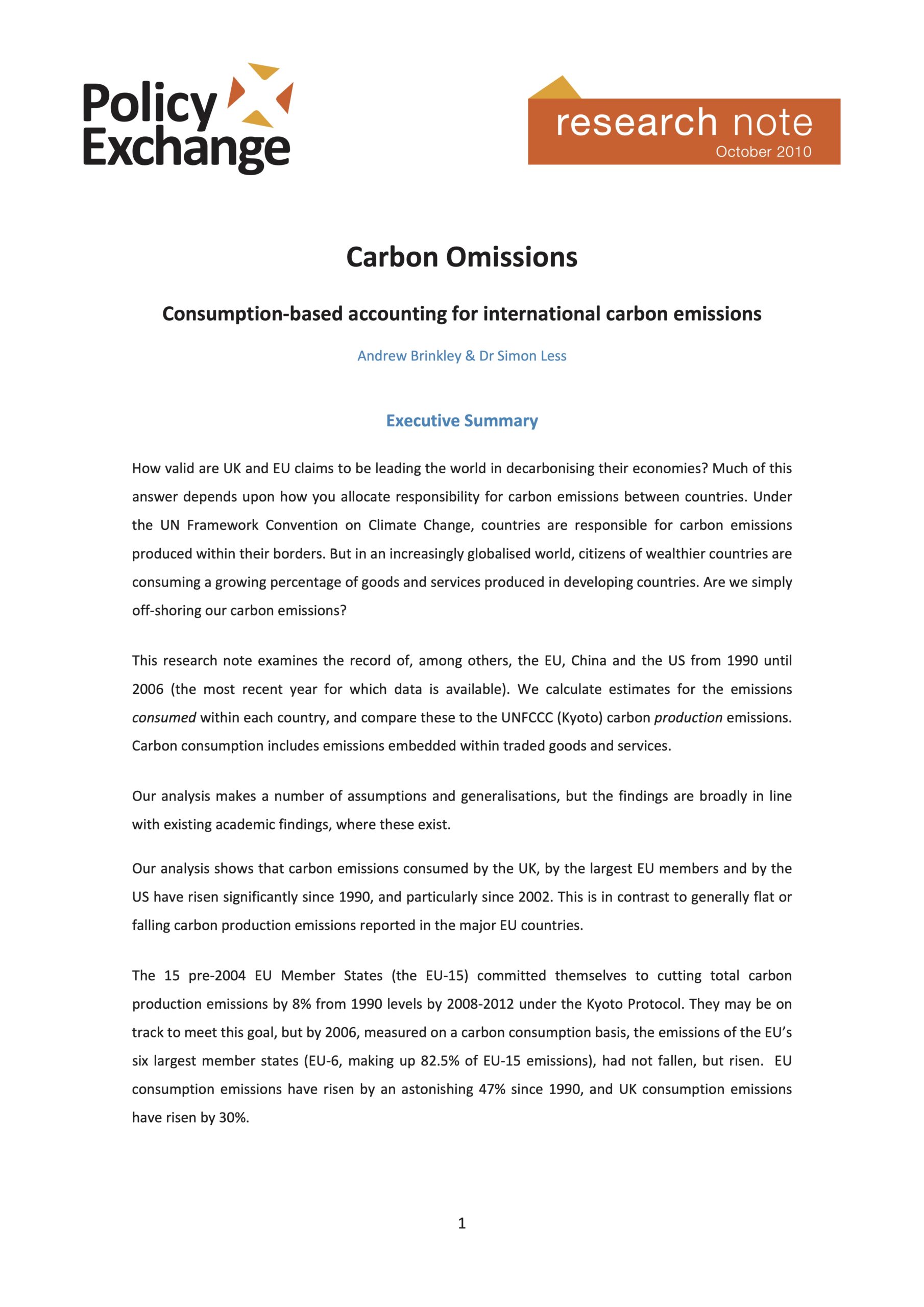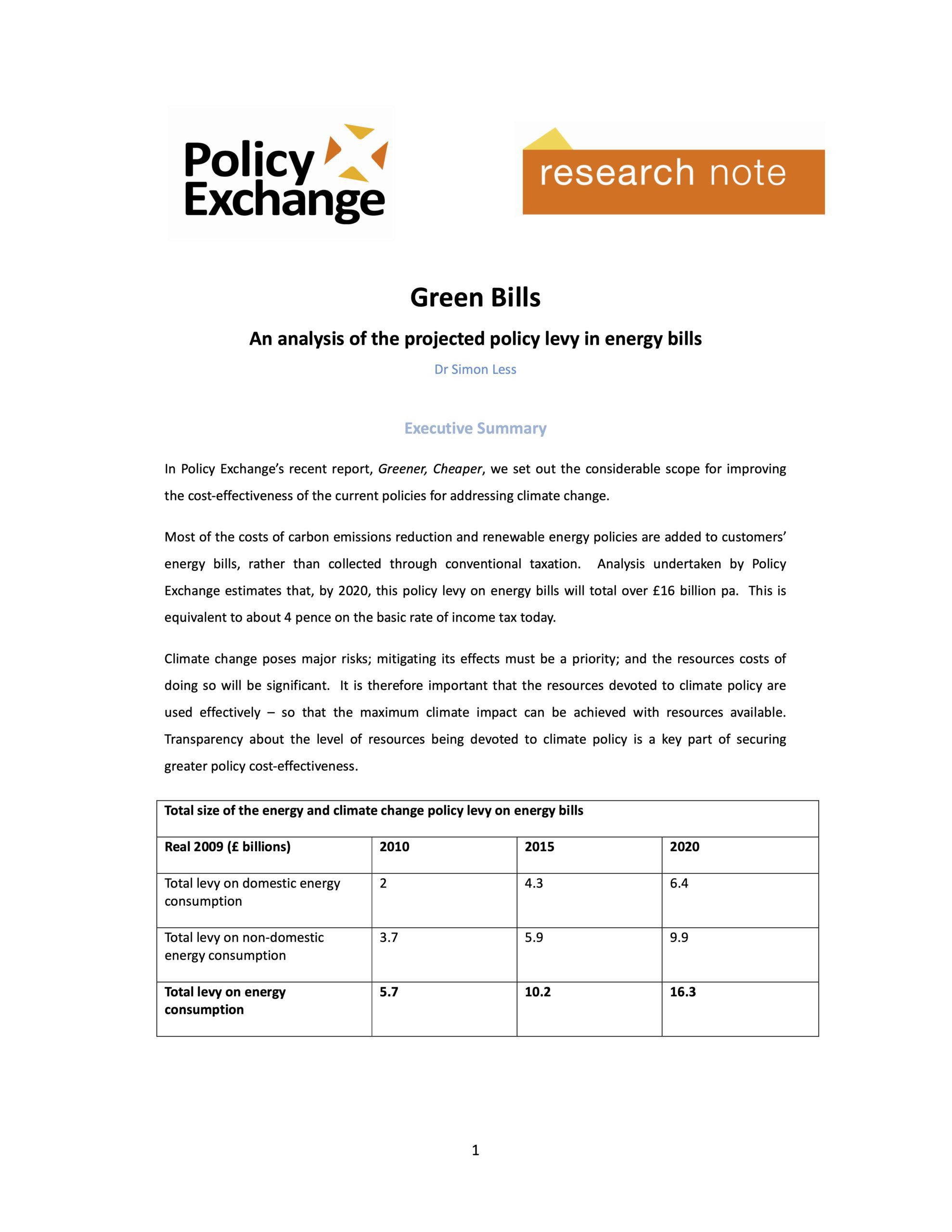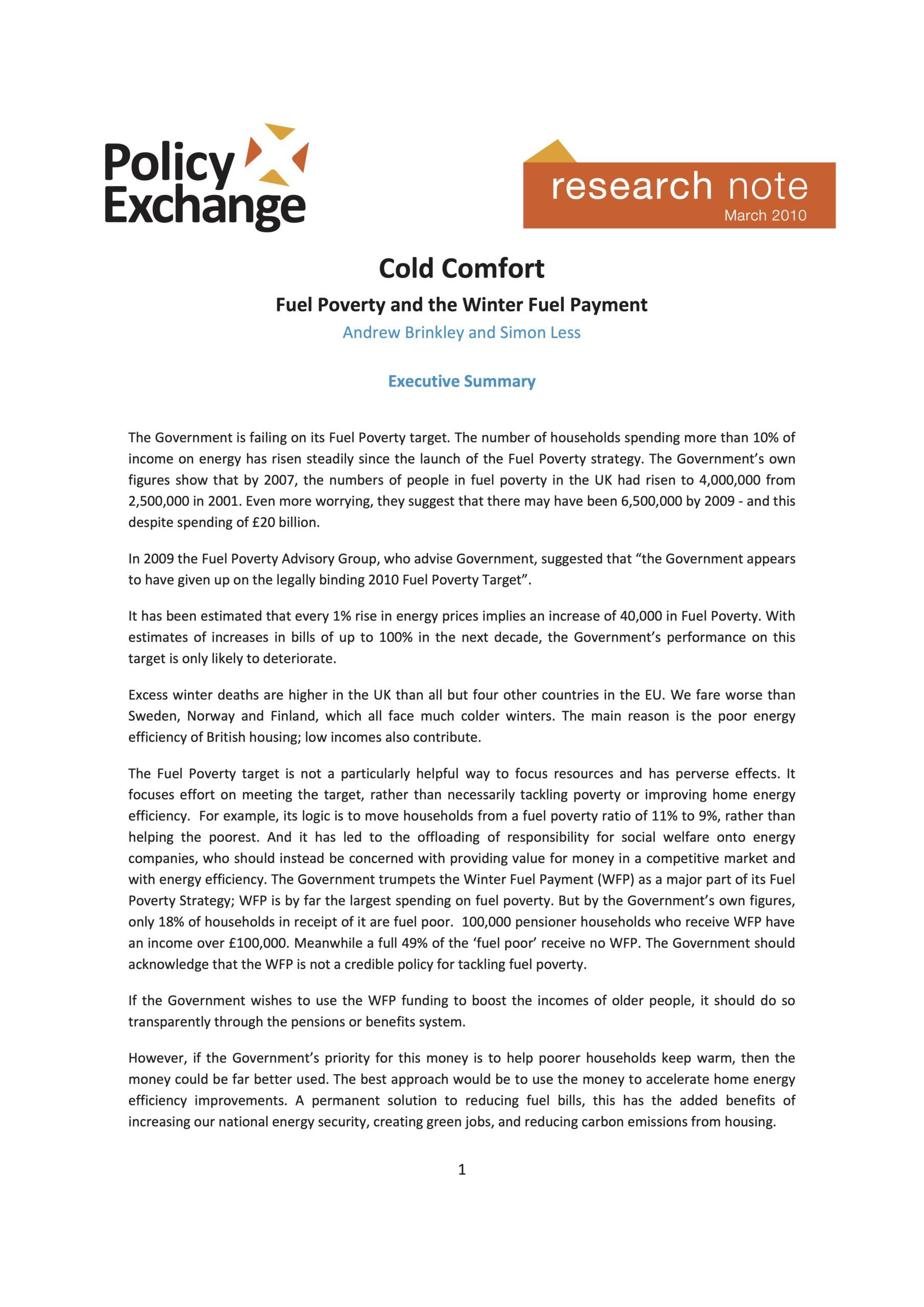Simon Less
Head of Environment & Energy, 2010-2012
Simon Less is now a director of Lucerna Partners, a regulatory policy consultancy that he co-founded. He is also an associate and advisor to the Regulatory Policy Institute.Simon led the Policy Exchange Environment and Energy Unit for two years 2010-2012; and was a senior visiting fellow in Regulatory Policy for a further two years 2012-2014.Prior to joining Policy Exchange, Simon was a senior civil servant in the Treasury and Ofwat.Simon holds a PhD in chemistry from Cambridge University and an MBA from Imperial College Business School.Authored Publications
On 14th February 2013, Policy Exchange held a roundtable discussion to help stimulate debate on what success for proposed new regulation of the energy retail market would look like and how it could be measured. This publication is a summary of the remarks made at that event.
Fuelling Transition says the electricity market needs to be allowed to invest in gas as a transition fuel, subject to a long-term EU emissions cap. Extending the EU cap to 2035 would give greater certainty to investors, allowing the market to decide which technology has the most potential to deliver emission reductions at the cheapest cost.
The planning system is failing to protect some of England's most threatened wildlife and important habitats. Nurturing Nature finds that mechanisms designed to protect England's natural environment and compensate for any damage to it are haphazardly applied and woefully monitored.
Gas Works? says that the government is “unnecessarily gambling with billpayers' money”. It says that the UK’s energy generation plans are based on forecasting future gas prices which is a flawed strategy, potentially resulting in the UK missing out on the potential economic and environmental benefits of shale gas.
This report accuses the Government of not clearly presenting the full impacts and costs of climate and renewable energy policies on households, and outlines how the UK could meet its carbon targets while saving households hundreds of pounds.
The current policy of subsidising select UK 'green' industries is based not on the subsidies for such selected sectors being the best way to reduce carbon emissions, but that a principal objective of these public subsidies is to promote UK growth, exports and employment. This is a big gamble, with renewables policies costing tens of billions of pounds more than necessary to meet 2020 carbon reduction targets.
Untapped Potential identifies reforms to regulatory arrangements for abstraction and water supply, to better protect rivers and natural environments at lower costs.
2020 Hindsight examines 16 different plans for achieving the UK target of an 80% cut in carbon emissions by 2050. None of the models showed that the UK’s commitment to producing 35% of its electricity from renewable sources by 2020 was needed to reach its carbon target.
Britain’s electricity market is being hamstrung by too much regulation and uncertainty, according to a new study from Policy Exchange.
Carbon Omissions reveals that Britain is actually consuming almost a third more CO2 than it was in 1990. The difference is that much of the carbon consumed in the UK and EU is “embedded” in products imported from countries such as China rather than produced in the UK.
Green Bills reveals how the total levy in energy – effectively tax to pay for climate and renewable energy policies – is set to soar by 2020. Figures reveal that by 2020, the cost of policies like the Renewables Obligation and Feed-in Tariffs – which pay householders to produce power uneconomically through technologies like solar – will hit over £16 billion a year.
The report suggests that a carbon tax would be a more cost-effective way of ensuring that Britain goes greener more quickly and more efficiently with a simpler, better targeted policy which is credible over the long term.
This report calls for a more honest approach from government. We argue that if the government wishes to use the Winter Fuel Payment funding to boost the incomes of older people, it should do so transparently through the pensions or benefits system. If, on the other hand, it is serious about helping people who struggle to heat their homes, the government should focus on improving domestic energy efficiency and effective approaches to tackling poverty.
The Water Bill, which goes to committee stage this week, has cross-party support for a welcome opening up of the water retail services market. But, argues Simon Less, the Government needs to listen to water companies, the regulator and the EFRA select committee, who, in a rare alliance, are calling for incumbent water companies to be allowed to exit the retail services market. This would help unlock the benefits from competition, scale economies and specialisation.
As Ed Miliband and Labour make shifts towards greater 1970s-style government control of private companies, Simon Less, Senior Visiting Fellow at Policy Exchange, argues that renationalisation of utilities would make things much worse as the Government has much better options for controlling prices while improving choice and quality for consumers.
Simon Less, Policy Exchange's Senior Consultant on Regulatory Policy, in a joint piece with Regina Finn, Chief Executive of Ofwat, discusses the range of ways sectoral regulators suffer capture. In particular, the article warns about a trend towards political ‘capture’ of, or undue influence over, independent sectoral regulators that appears to forget the reasons why the Thatcher government made sectoral regulators statutorily independent.
Simon Less, Policy Exchange's Senior Consultant for Regulatory Policy, criticises government plans to restrict energy companies to just four tariffs per fuel, arguing that they will make it more profitable for large energy companies not to compete and the cheapest tariffs will disappear.
Simon Less, Senior Consultant for Regulatory Policy at Policy Exchange, argues that it is hard to predict what the best and cheapest carbon technologies will be to reduce carbon emmissions and lower carbon bills, and stresses that the design of policy needs to reflect this.
Simon Less, Senior Consultant to Policy Exchange on Regulatory Policy, points out that a monopoly franchise like the West Coast Mainline does not have to granted to one train operator. He argues that companies should be allowed to operate trains in direct ‘on-rail’ competition for passengers on the same route - on the basis of their prices and services.
Simon Less, Policy Exchange's Senior Consultant for Regulatory Policy, argues that re-regulating the energy market will not work as it will undermine the competitive market. He suggests reducing regulatory burdens on small energy suppliers and improving tariff transparency.

